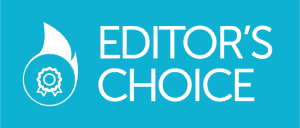When the Leukemia & Lymphoma Society (LLS) was founded in 1949 by a family in memory of their sixteen-year-old son, cancer was considered a hopeless condition.
As noted recently in Arizona Business News, LLS is celebrating seventy years of research and patient support. The Arizona executive director for LLS, Jim Brewer, points out that since its inception even pediatric blood cancer survival has jumped from five percent to ninety percent.
Brewer said that a majority of cancer treatments began with research in blood cancer. Blood cancer research is considered to be revolutionary due to its role in assisting the development of treatment for other types of diseases and cancers.
Brewer expressed his confidence that the same will apply to pediatric research. He notes that oncologists who work with other non-pediatric cancers recognize the potential of the Children’s Initiative and are participating in the project.
LLS announced its investment in the LLS Children’s Initiative totaling fifty-million dollars over several years. This is an unprecedented clinical trial that will change the current method of treating pediatric blood cancers. A second portion of the initiative will be an expansion of support and services to be provided to families and children.
Currently, clinical trials that are testing treatments that use blood cancer approaches include kidney, brain, breast, bone, liver, ovarian, prostate and pancreatic cancers. Similar approaches for other diseases include melanoma, multiple sclerosis, diabetes, lupus nephritis, and rheumatoid arthritis.
The Downside of Chemotherapy
Brewer discussed the effects of long term chemotherapy treatment that result in serious side effects. The survival rate for children with acute lymphoblastic leukemia has increased but so have the adverse events.
The American Cancer Society reports that low blood cell counts resulting from long-term chemotherapy drugs put a patient at risk for infections, blood clots, and developmental problems.
Brewer acknowledged the challenges of receiving approvals for pediatric cancer drugs. He said these challenges may be met by setting up a master trial. The goal would be to prove the safety, economy, and efficacy of these therapies. He said that the drugs are out there but they still need to be made available for the pediatric patients.
A Doctor with Deep Empathy
Dr. Allison Rosenthal, an oncologist at Scottsdale’s Mayo Clinic, has first-hand knowledge of the importance of having support after a diagnosis. Dr. Rosenthal was diagnosed with lymphoma when she was in medical school.
Dr. Rosenthal explains that her world was turned upside down. Just like any other person receiving such devastating news, she needed and received the support of the LLS team. The diagnosis also put her on a different path to her future career. Dr. Rosenthal had been studying to be an orthopedic surgeon but moved easily into a career as an oncologist where she can provide not only her expertise but also her understanding and support.
About CAR-T Cell Therapy
According to Dr. Rosenthal, LLS has played a role in advancing nineteen out of twenty-one blood cancer treatments that have been FDA approved. She specifically mentioned CAR-T cell therapy that has been approved for young adults and pediatric patients. It has also been approved for adults who have been diagnosed with an aggressive lymphoma known as B-cell non-Hodgkin’s.
Dr. Rosenthal referred to new therapeutic trials that are advancing cellular therapy, such as CAR-T, towards the treatment of cancer-based proteins that are expressed in tumor cells.
In addition, LLS has taken the lead and is funding the Beat AML Master Trial. This is a significant precision-based trial that is testing targeted therapies for acute myeloid leukemia (AML).
LLS Investing, Funding, Research, Support
- 4,100 research projects supported since 1949
- $1.3 billion invested in cancer research since 1949
- Funding research at one hundred medical institutions worldwide
- 2018: LLS raised over $250 million; a record-breaking total
- LLS currently has fifty-six local chapters

.jpg)





